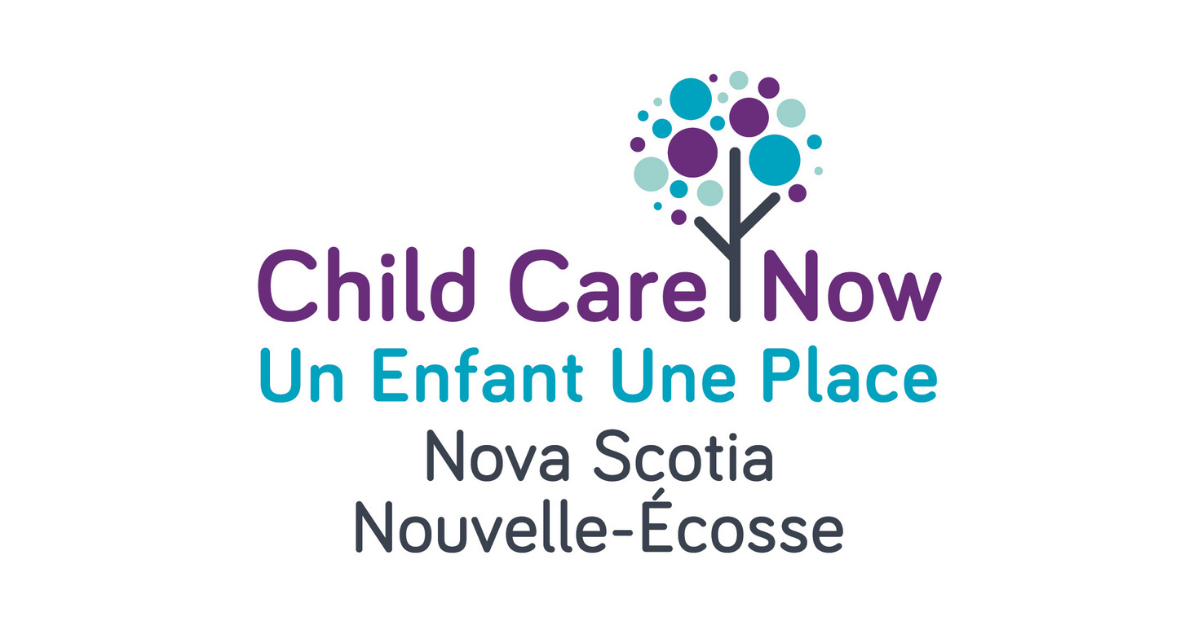The following news release was distributed by Child Care Now Nova Scotia on July 13, 2021.
Child Care Now Nova Scotia recognizes that the funding agreement between the federal government and Nova Scotia government is monumentally significant. Child Care Now Nova Scotia’s thoughts can be summed up as: “They heard us! Now let’s build that universal child care system together.”
Christine Saulnier, member of the steering committee of Child Care Now Nova Scotia said this of the agreement, “We are very pleased that the Nova Scotia and federal governments are intent to invest in a strong foundation for a truly affordable, accessible, inclusive and quality, not-for-profit and publicly managed early learning and child care system. They recognize the need to deal with all three current challenges in the patchwork of programs as we have raised: high fees, lack of regulated spaces, and undervalued early childhood educators (ECE) workforce. We know that the details will matter and want to ensure we have a voice in the implementation committee that will be developed. The new public body to oversee the management and delivery of child care is critically needed, as is ongoing evaluation, and opportunities for input.”
“As a parent I am so pleased to hear the commitment to making child care affordable, cutting parent fees in half and instituting an average fee cap of $10 a day will make a big difference for many families. We hope that they will continue to build on this foundation to ensure that the system becomes comprehensive, seamless, and universal where everyone who wants access can get it, without worrying about whether they can afford it or find a space in their community that meets their needs, whether for flexible hours or for learning needs, or linguistic and cultural needs,” says Amber Rehill, a member of the steering committee of Child Care Now NS and a parent of two (a three-year-old and a ten-month-old). As a registered nurse who has worked shifts, rotating days and extended hours, she knows all too well the struggle of finding child care to meet her family’s needs.
Rehill adds: “Child care is an invaluable public resource that deserves the investment announced today and more and urgently. Five years is a long rollout for young children, and it leaves many families to struggle to afford and access care.”
Member of the steering committee Naomi Stewart had this to say, “We were pleased to see that a workforce strategy was central to the announcement today and the recognition that ECEs deserve higher wages, free educational opportunities and professional support. We will look forward to consultations on the compensation framework, which must be a competitive comprehensive package. However, the two-year rollout of the first phase of new spaces won’t be possible without action to address wages and benefits now because we will lose the ECEs we have and struggle to recruit others. ECEs are paid a median wage of $17 an hour and many do not have access to the full range of benefits from paid sick leave to paid professional development time, and without decent pensions will retire into poverty. They deserve more now.”
“I do appreciate the $500 one-time wage top-up, however waiting another month, let alone a year or two, for an actual base pay raise is difficult. I think more could have been done immediately to raise up the bottom. I look forward to continuing to share my experiences and expertise on the ground to work on these issues and building a quality system together,” says Margot Nickerson, an early childhood educator for over 25 years and a member of the steering committee.
“We have not yet heard mention of supports for the early childhood leaders and directors needed to start, expand and sustain 9,500 additional childcare spaces as well as support existing spaces. Early childhood programs need experienced, well trained leaders to make quality growth possible. In addition to other important ECE initiatives, we need specific focus on developing effective leaders who are absolutely essential in creating the early education system that we all envision,” says steering committee member and child care operations strategist Karen Foster-Jorgensen.

